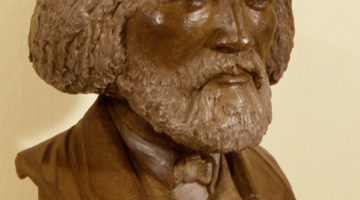 FORT LAUDERDALE — Sitting in the Broward County Main Jail, William Graham Potts Jr. wonders if the American justice system is ready to set him free for a crime he committed 30 years ago and for which he has already spent 15 years in jail.
FORT LAUDERDALE — Sitting in the Broward County Main Jail, William Graham Potts Jr. wonders if the American justice system is ready to set him free for a crime he committed 30 years ago and for which he has already spent 15 years in jail.
He knows it’s an uphill battle. Potts boarded a Piedmont Airlines flight from New York to Miami in March 1984. When the plane started to approach Miami International Airport, he brandished a gun and gave the flight attendant a note which said he had explosives and he threatened to blow up the plane if he wasn’t taken to Cuba. He also demanded $5 million in ransom.
When the plane landed in Cuba, Potts – a/k/a William Freeman, a/k/a/ Lt. Spartacus – was immediately arrested and jailed for 15 years in prison for aircraft piracy.
He served his sentence in Combinado del Este prison in Cuba, was released, got married twice and fathered two children, Ntann, 8, and Assata Shakur, 12, whom he sent to the U.S. in December 2012 – the same country he fled – and now wants to reunite with them and start his life again as a farmer.
Believing he paid for his crime by serving jail time in Cuba, Potts decided to return to the United States. But, as he arrived at MIA on Nov. 6, the FBI arrested him on a 1985 air piracy indictment and was held in the Miami-Dade Federal Detention Center and then transferred to Broward. He faces 20 years to life in prison.
Now in a Broward jail, on Tuesday Potts held court with fellow inmates before briskly walking over to a telephone wearing a Muslim headwear – he converted to Islam and also goes by the name Abdul Majeed – and grey prison jumpsuit, with a cream-colored sweater under it.
“I want to go home,” Potts said in a prison interview with South Florida Times.
He believes there is a glimmer of hope that it will happen. He pleaded guilty May 1 to a new charge of kidnapping as part of a plea bargain that dropped the air piracy charge. This gives the court more flexibility in passing sentencing. Kidnapping carries a maximum life sentence but the plea deal says the judge may consider the time Potts spent in a Cuban jail as a mitigating factor.
Potts is hoping it translates to no more jail time. “I am not getting away with anything,” he said. “What I did was unjustifiable but I didn’t know that at the time. Spending 15 years in prison gives a person a lot of time to think, to grow – and I did. I am a man now.”
Potts’ attorney, Assistant Federal Public Defender Robert Berube, did not return phone messages from South Florida Times. He told the Associated Press there is no guarantee that Potts will not be sent to prison, adding, “but 15 years in a Cuban prison is pretty hard time.”
Potts said he has written to President Barack Obama asking for a pardon. So Potts’ future seems to be in the hands of the U.S. Attorney’s Office. He will know his fate July 11, when he is scheduled to be sentenced. Assistant U.S. Attorney Maria Medetis told the Associated Press the Justice Department had not decided yet what sentence to recommend.
Potts is hoping that he will not be treated differently than Robert “Casey” Richter, a white man, who, in 1983, hijacked an Air Florida flight from Tampa to Cuba. The Cuban government arrested Richter and sentenced him to 20 years in prison, where, Potts said, he was Richter’s cellmate. Richter served five years only in Cuba, then returned to the U.S., were he surrendered to the FBI. He was released from prison on June 16, 1992.
In a letter to South Florida Times in which Potts sets out his case for freedom, he said Richter was not the only prisoner in Cuba who benefited from “preferential treatment” by the U.S. Attorney’s Office.
“In fact, nearly 100 Americans were serving long prison terms in Cuba during the 15 years I was imprisoned there but after completing only a fraction of their sentences all of them were remanded into the custody of U.S. officials by the Cuban government in a humanitarian gesture for them to complete their sentences in their native country,” Potts said.
He said that on their return home, they were all given credit for time served in Cuba and all of them were white.
“I am the only American prisoner of that period left behind to complete his sentence there and I am the only American prisoner of that group who is black,” Potts said.
Potts is relying on a memorandum dealing with his case from the U.S. Interests Section in the Swiss embassy in Havana. He provided a copy of the partly redacted copy of the document which he said he obtained through the courts.
It says, in part, that the U.S. Attorney “is willing to work with Mr. Potts to resolve the issue and to recommend that he be given credit for the prison time he has served in Cuba.”
Potts’ story began, he said, when he became enraged at the treatment of blacks. Living in 1960s America, the New Jersey native said he had seen it all. He joined the Black Panther Party, organized rallies and actively participated in the civil rights movement. He hijacked the plane, he said, to learn what he called ways of an effective struggle and to be trained as a guerilla.
His thinking, he now says, was flawed.
But he has returned to a post 9/11 America, where attitudes toward crimes such as the one he committed have hardened. “They can’t apply present-day guidelines to something that happened in 1984,” he argues. “There was no al Qaeda then, no conspiracy. I can’t be saddled with something that happened 20 years in the future.” He says he has changed and has no plans to return to politics.
“The world has changed. The Berlin Wall came down, the Soviet Union collapsed – and I changed too,” he said. “I just want to be a farmer. That’s what I learned in Cuba.”









No Comment